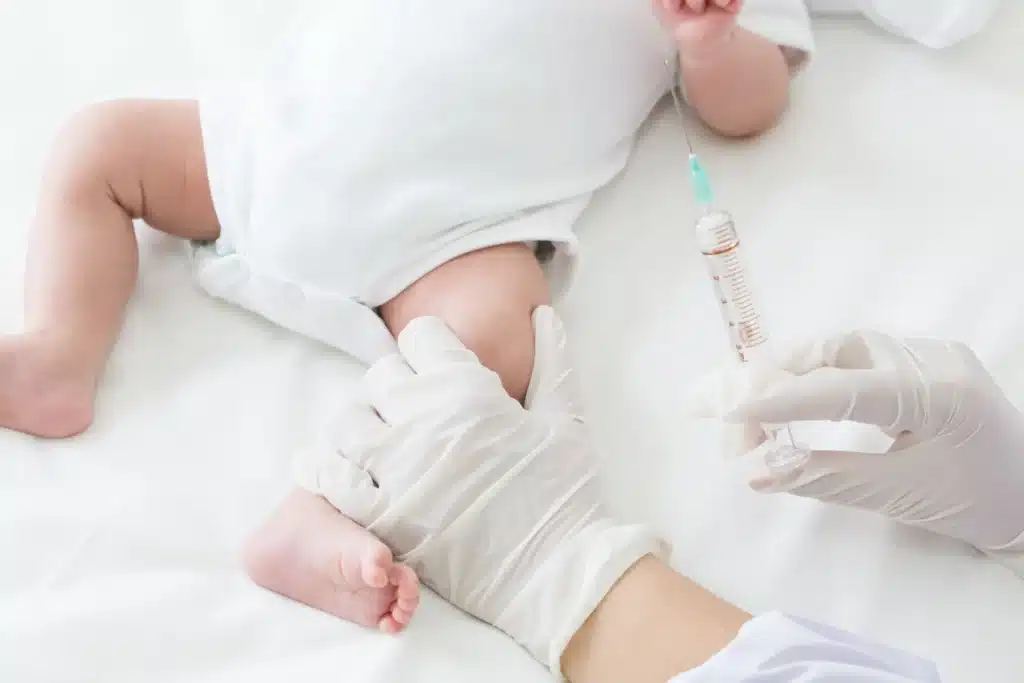When we talk about protecting newborns from life-threatening infections, the hepatitis B vaccine often tops the list. While many people associate hepatitis B with transmission through sexual contact or shared needles, few realize how easily babies can contract this virus during birth—even when their mothers seem low-risk.
What is Hepatitis B
Hepatitis B is a contagious liver infection caused by the hepatitis B virus (HBV). It spreads through contact with infected blood, semen, or other bodily fluids. Common transmission methods include unprotected sex, sharing needles, and from mother to baby during childbirth. Hepatitis B can be either acute (short-term) or chronic (long-term), with chronic cases potentially leading to serious health issues like liver damage, cirrhosis, or liver cancer. Many people with hepatitis B may not show symptoms, making it easy to spread unknowingly. Although there’s no cure, the hepatitis B vaccine provides effective, long-term protection and is recommended for all age groups.
How Do Babies Get Hepatitis B?
Hepatitis B is a serious liver infection caused by the hepatitis B virus (HBV). It’s highly contagious and often spreads through blood or bodily fluids. A mother who tests positive for HBV can unknowingly pass the virus to her baby during childbirth. Alarmingly, without any intervention, up to 90% of babies born to mothers with hepatitis B will become infected.
That’s where the power of early vaccination comes in.

The Power of Preventive Care: Vaccine + HBIG
Administering the hepatitis B vaccine along with hepatitis B immunoglobulin (HBIG) within the first 12 hours after birth can reduce a baby’s risk of contracting the virus from 90% to less than 1%. This two-part protection is a global gold standard in neonatal care. Even if a mother’s test is negative, false negatives or infections acquired late in pregnancy could still pose a threat. That’s why leading health organizations, including the CDC and WHO, recommend all newborns receive the hepatitis B vaccine shortly after birth—regardless of maternal risk factors.
Why Some Parents Choose to Delay
Some families choose to delay the hepatitis B vaccine until the baby is two months old, when other routine vaccinations begin. While this is a personal and informed choice, it’s essential to understand the risks of early exposure and the importance of completing the full vaccine series over time for full protection.
The Global Impact: 90% Reduction in Cases
There’s compelling evidence that this vaccine works. In countries with high vaccination coverage, hepatitis B cases among children under five have dropped by up to 90%. That’s not just progress—that’s a public health victory. This vaccine is:
- ✅ Safe
- ✅ Highly effective
- ✅ Crucial for long-term protection
And unlike many other viruses, hepatitis B has no cure. Once it becomes chronic, it can lead to cirrhosis, liver cancer, and lifelong health complications.
Knowledge Is Power for Parents
As a parent, your decisions matter—and so does your peace of mind. Understanding both the benefits and potential risks of vaccines can help you make confident choices. That’s why there’s a FREE vaccine guide available to help you dive deeper into the facts and separate myth from medicine:
🔗 Download it here
Informed consent is crucial to making the best decision for your child’s health. Vaccination rates have a significant impact on disease prevalence in communities. Protecting your child against hepatitis B is a long-term investment in their well-being. Stay informed and consult reputable sources when making healthcare decisions for your family. Your efforts in understanding vaccines contribute to public health and your child’s future.
The hepatitis B vaccine at birth offers newborns a powerful shield against a dangerous and incurable infection. Whether you follow the recommended schedule or choose to delay, staying informed is the first step in protecting your child’s health—for life. Stay updated with UState Pulse.